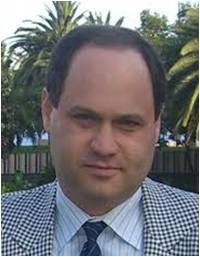Keynote speakers
Prof. Hojjat Adeli

Subject: Multi-paradigm Computational Intelligence Models for EEG-Based Diagnosis of the Neurological and Psychiatric Disorders
Abstract
In this keynote lecture, the author presents a novel multi-paradigm methodology for automated electroencephalogram (EEG)-based diagnosis of neurological and psychiatric disorders. The methodology is based on adroit integration of three different computing technologies and problem solving paradigms: neural networks, wavelets, and the chaos theory. Examples of the research performed by the author and his associates for automated diagnosis of epilepsy, the Alzheimer's Disease, Attention Deficit Hyperactivity Disorder (ADHD), and autism spectrum disorder (ASD) are reviewed briefly.
Prof. Plamen Angelov

- Chair in Intelligent Systems and leads the Intelligent Systems Research within the School of Computing and Communications, Lancaster University, UK
- Founding Chair of the Technical Committe on Evolving Intelligent Systems with Systems, Man and Cybernetics Society, IEEE
- Co-recipient of several best paper awards at IEEE conferences (2006 and 2009, 2012, 2013)
- Co-recipient of two prestigious Engineer 2008 Technology + Innovation awards for Aerospace and Defence
- Co-recipient of the Special Award as well as the Outstanding Contributions Award by IEEE and INNS (2013)
- Editor-in-Chief of the Springer journal Evolving Systems (ISSN 1868-6478) and Associate Editor (AE) of prestigious IEEE Transactions on Fuzzy Systems and of Elsevier's Fuzzy Sets and Systems
Subject: “Autonomous Learning Systems: association-based learning”
Abstract
Traditionally, machine learning assumes a significant involvement of the human. The reality of 21st century, however, poses new challenges which come from the Big data paradigm, explosion of usage of social networks and multimedia, an exponentially growing data streams and cheap computational processing and sensor devices. The bottleneck in the old human desire to extract seamlessly and in real time useful knowledge is now not the hardware or access to data, but the algorithms which are still largely based on decades if not centuries old paradigm of availability of all data (offline, cross validations), their stationarity (changes like the financial crash of 2008 proved to be enigmatic) and limited size which can be stored and communicated/transmitted as we wish (bandwidth limitations).
In this talk the basics of Autonomous Learning Systems with a particular emphasis to the role of a new paradigm – association-based learning using data density - will be presented in a systematic way. Traditionally, learning is based on first principles, expert-based or probabilistic (statistical) models. Probabilistic models in return are most widely represented by the so called frequentistic (Bayesian) paradigm which is three centuries old and has some inherent contradictions. An alternative which is based on the similarity, proximity and density in the data space has been recently introduced and will be detailed in the talk. Data density differs (although it resembles) the well known and widely used probability density function (pdf), information potential and other similar representations related to system state and structure description.
Addressing these challenges over the last decade the author pioneered a new approach called dynamically evolving systems. This new concept is based on several principles: i) the mathematical model structure is not fixed, but is dynamically evolving (it can both grow and shrink, reduce other dimensions such as inputs etc.); ii) the complex systems is better to be decomposed into smaller (possibly overlapping) sub-systems/models (the old Latin sentence Divide et impera); iii) adapting to new environment and internal changes in terms not only of parameters of the system but also of its structure; iv) reducing the role of the human to start/stop and possibly monitor, but not to provide system structure, for example; v) use computationally efficient recursive calculations and this avoiding iterative solutions and operating on-line in real-time, sample by sample; vi) avoiding use of problem and user-specific thresholds and parameters in general.
References:
- P. Angelov, Autonomous Learning Systems: From Data Streams to Knowledge in Real time, John Willey and Sons, Dec.2012, ISBN: 978-1-1199-5152-0.
- P. Angelov, D. Filev and N. Kasabov (Eds), Evolving Intelligent Systems: Methodology and Applications, John Willey and Sons, IEEE Press Series on Computational Intelligence, April 2010, ISBN: 978-0-470-28719-4
- P. Angelov, Evolving rule-based systems: A Tool for Design of Flexible Adaptive Systems, Springer, Physica Verlag, 2002.
Prof. Tharam Dillon, La Trobe University, Australia

- Life Fellow IEEE, FACS, FIE
- Editor-in-Chief International Journal of Computer Systems Science & Engineering (UK) 1986-1991 Butterworths, 1992-1996 CRL Publishing.
- Editor-in-Chief International Journal of Engineering Intelligent Systems (UK) 1993-1996.
- Chief Co-editor International Journal of Electric Power and Energy Systems (UK) 1978-1991, Butterworths 1992-1996 Elsevier.
- Associate Editor IEEE Transactions on Neural Networks (USA) 1994 - 2004.